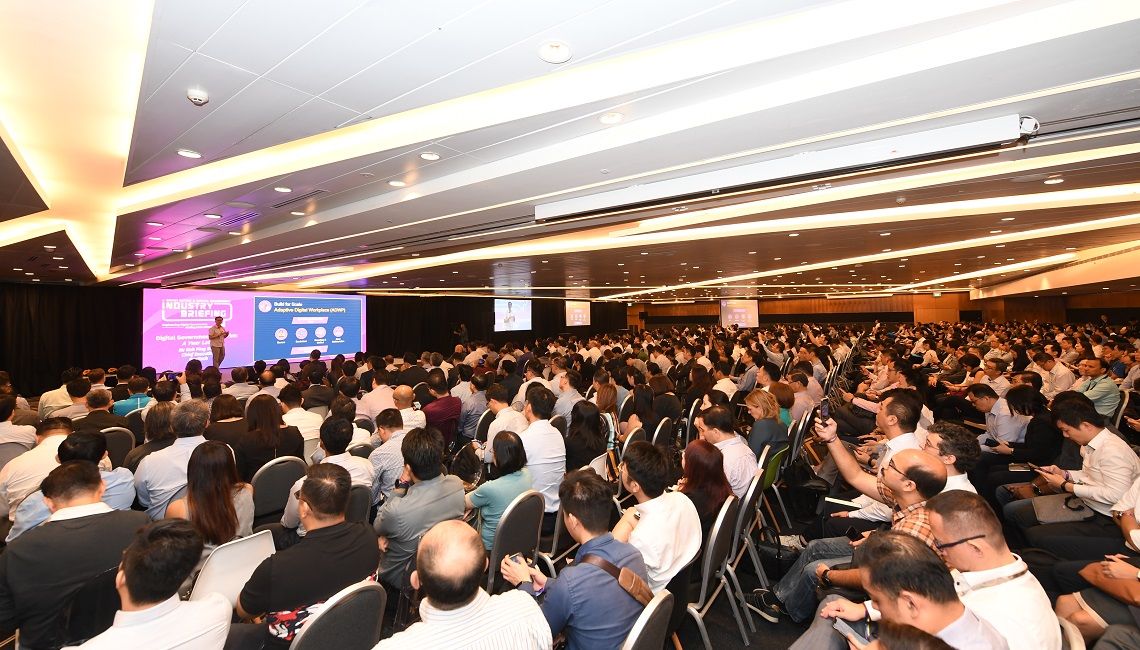Singapore reveals 2020 GovTech procurement plans
By Nurfilzah Rohaidi
There will be three new partnership models for government to buy from and work with companies.

First, the government will “call for solutions” and work closely with industry to trial experimentation. “Essentially, the idea is that we want to look at crowd-sourcing ideas,” she remarked at the recent Smart Nation & Digital Government Industry Briefing held in Singapore.
How will this look in practice? The government will lead hackathons to collect ideas and solutions, and this will happen alongside the procurement process. Previously, the two were separate; this helps to shorten the runway. “We marry both together, so we can proceed through different stages of the deployment,” Mah explained.
In the second model, government will co-develop with partners, taking on a longer-term approach to the working relationship. “When the performance mark is met with a partner itself, they can actually continue to co-develop more projects with us,” said Mah. And based on the company’s track record, they could even take over the operations of a project.
The government will use this approach in three areas in particular, said Kwok Quek Sin, Senior Director of the National Digital Identity (NDI) project: certificate authority, biometrics and fraud analytics.
Finally, the government will use “dynamic contracting” for bulk tenders. “In the midst of the contract, we can add new requirements to the existing panel of suppliers, or add new suppliers,” said Mah. The large, multi-year contracts of old will be replaced with this new way of working.
There are two main advantages to dynamic contracting, she added. This allows for a more collaborative work, and guards against products or services becoming obsolete by the time the tender finishes. “This actually allows me to have a lot of rapid changes.”
National Digital Identity
Meanwhile, Singapore is developing the NDI platform, which will help citizens and businesses make sure that people are who they say they are, whether online or in the physical world. It is being developed on a commercial cloud platform, but these procurement changes are partly due to a broader push for the government to “eventually go on multi-cloud” platforms, according to Kwok. This move will enable “greater scalability, resiliency, and allow us to leverage our industry innovation”, he said.
The NDI platform builds upon the existing SingPass authentication system, which allows citizens to verify their identities for government transactions, said Kok Ping Soon, Chief Executive of GovTech. NDI will support innovation in industry and enable companies to build more secure, user-friendly services, he remarked.
There are several benefits aimed at citizens and businesses. Citizens will be able to log into private sector services such as banking, not just public ones. It will also allow “authorisation, digital signing, and identity-proving”, said Kwok.
For businesses, the NDI platform will help provide secure authentication for their customers, both online and offline. What’s more, the NDI platform will issue “digital signing certificates” to all citizens through their SingPass mobile app. “Digital signing increases the assurance of documents, and maintains integrity of your document as well,” Kwok explained.
More products are going to be launched to support businesses in this area. They will help companies obtain authorisation and consent even if customers are not physically present; collect digital signatures; and verify identities using facial recognition in physical kiosks, Kwok continued.
The government will also launch “biometrics as a service” this financial year, he added. And after 2020, GovTech will “intensify our efforts to pursue cross border recognition”.
Much has been planned for the coming years. This year, the government hopes to beta launch NDI core services for public officers first, before launching in public next year. These core services include “authentication, authorisation, digital signing, as well as fraud analysis systems”, according to Kwok.
When complete, the NDI platform will be a pillar in building a “trusted digital ecosystem”, Kwok explained, “where data and services can transcend the boundaries of organisations”. This “faster flow of data” - while still adhering to user privacy and consent restrictions - is “fundamental” to growing the digital economy, he remarked.